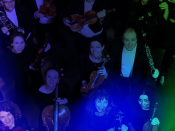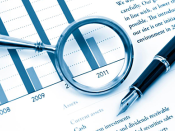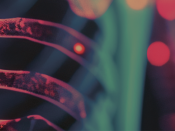Por Marianna Girlando (ILLC, University of Amsterdam).
Conditional logics enrich the language of classical propositional logic with a two-places modal operator, the conditional, suitable to represent fine-grained notions of conditionality, such as counterfactual statements, non-monotonic inferences, and conditional belief assertions. Semantic studies of conditionals date back to the 1970s, with the seminal works of Stalnaker, D. K. Lewis and Chellas. Since then, various classes of models capturing conditionals have been developed and extensively studied. In contrast, the proof theory of conditional logics has been developed only in recent years, relying on the proof-theoretic techniques employed for modal logics. Specifically, to define analytic proof systems for modal logics, two main approaches have been developed: the labelled approach enriches the language of sequent calculus with semantic information, while the structured approach employs additional structural connectives in the calculus. To this latter approach belong, e.g., nested sequents and hypersequents.
After introducing conditional logics and their semantics, that I will define in terms of neighborhood models, I will present sequent calculi for conditional logics belonging both to the labelled and to the structured approach. Namely, I will present a labelled sequent calculus, modularly capturing a large family of conditional systems by internalising their semantics, and a nested-style sequent calculus, featuring a structural connective representing neighborhoods of the model. I will then compare the two calculi and their properties.
This talk is based on joint work with: Bjoern Lellmann, Sara Negri, Nicola Olivetti and Gian Luca Pozzato.
Bio: After a Master in Logic, Philosophy and History of Sciences at the University of Florence, I pursued my interests in proof theory and modal logics with a joint PhD in Computer Science (Aix-Marseille Université) and Philosophy (Helsinki University). Under the supervision of Nicola Olivetti and Sara Negri, I studied the proof theory of conditionals logics, introducing several innovative proof systems for these logics. After discussing my PhD thesis in 2019, I worked as a postdoc at Inria Saclay (Ile de France), under the supervision of Lutz Strassburger. In the course of the postdoc I became interested in studying the decidability of modal logics through proof-theoretic methods. Then, in 2021 I moved to the University of Birmingham to study cyclic proof theory under the supervision of Anupam Das. Cyclic proofs are an elegant and analytic formalism to capture (among others) modal logics with operators expressing forms of recursions, such as transitive closure. From 2022 to August 2024 I was a Marie Skłodowska Curie fellow at the Institute of Logic, Language and Computation (ILLC) of the University of Amsterdam, with a project aiming at finding a general and uniform method to define cyclic proofs for families of modal logics with recursive modalities. Since September 2024, I am assistant professor at the ILLC, and I plan to continue my research in proof theory, targeting both conditional logics and logics with recursive modalities.
Transmissão via Zoom (pw: 195088).





















